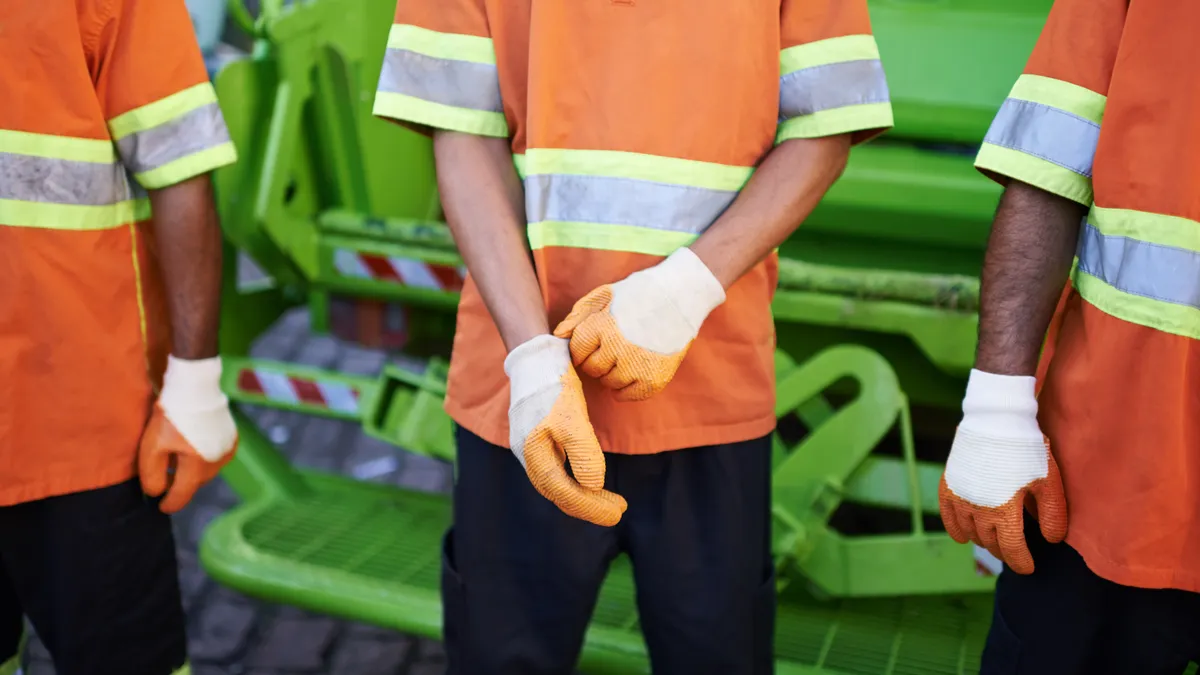Timing is everything when it comes to collecting waste. And static pickup schedules don't always reflect the ebbs and flows of activity in a community, campus, or other facility. Whether the cause is a busy event, an uptick in tourism, or even illegal dumping, overflowing trash cans create unsightly and unsanitary environments. Meanwhile, servicing cans that don't need emptying makes poor use of valuable resources.
One recent example comes from the University of Idaho, where a time-consuming waste management process prompted officials there to find a way to reduce operational burdens.
Enter smart trash cans. With the help of sensor technology, waste management teams can determine when and where to pick up cans, optimizing their routes based on demand. This is critical as government budget cuts pressure parks systems, universities, and sanitation departments to do more with less funding, and with labor in short supply.
For the University of Idaho, adding sensors from Danish sensor-maker Nordsense to 58 concrete trash bins on the 10,000-student campus cut the waste management team’s working hours and fuel consumption in half.
Other organizations and municipalities can similarly benefit by using smart trash cans to handle waste more efficiently. Here's how:
1. Targeted Pickups
Emptying public trash cans too early or too often results in unnecessary resource expenditures, including excess carbon dioxide emissions, fuel consumption, and labor costs, as well as unneeded wear and tear on trucks and cans. Picking up too late can mean unsanitary conditions, complaints from locals, increased service requests, and illegal dumping.
Smart trash cans employ sensors that alert sanitation teams when cans need emptying. This feature can reduce pickups by up to 50%, according to Nordsense, as a result of allowing teams to design routes that make quick work of their community or facility’s waste elimination needs.
2. Asset Tracking
Sensor technology not only alerts sanitation teams to overflowing cans, but it also lets them keep tabs on trash receptacles. Location-tracking shows whether a can has been moved or stolen, allowing for reclamation or replacement of the missing bin.
Sensors can also detect issues in and around a bin. If a smart trash can gets tipped on its side, an integrated accelerometer may trigger an alert. Similarly, sensors can alert sanitation teams to temperature fluctuations, which can reduce fire hazards. Having this information on file can also make teams aware of a bin's service history to improve routine maintenance planning.
3. Optimized Workflow
Integrating sensor technology into trash cans enables smarter, data-driven decisions across the entire waste collection process.
If the trash cans at an off-the-beaten-path park don't regularly fill up, but the bins near a football stadium overflow quickly on game day, public works can adjust collection routes accordingly—without having to manually identify overflowing cans.
Using sensor technology on bins that fill up quickly or regularly overflow can help better forecast demand, giving teams insight on where to add new cans or remove existing ones.
TrashTalk™ can help realize these benefits
Waste management has long been a low-tech enterprise, but its future is internet-enabled. Global Industrial's new collection of TrashTalk™ smart trash cans are powered by Nordsense technology to help municipalities and other organizations embrace this shift and better handle waste inefficiencies.
Here's how it works: TrashTalk™ combines a Global Industrial waste receptacle with an easy-to-install optical laser sensor from Nordsense, empowering teams to remotely and wirelessly monitor trash levels and optimize pickups. The sensor measures 16 data points within the container to provide a detailed topography of the waste's surface at 15-minute intervals.
The system can integrate with existing waste management software via an application programming interface, maximizing data-sharing and analysis.
TrashTalk™ is ideal for municipalities that need to cut down on public service requests along with labor and maintenance costs incurred by too-frequent pickups. Midsize to large corporate, healthcare, and educational campuses also may realize the benefits of remote monitoring. Sports stadiums, concert arenas, and amusement parks can reduce instances of overflowing bins with remote-sensing receptacles, too.
Learn more about how TrashTalk™ can help your community or business manage waste more efficiently by contacting Global Industrial's product experts.






